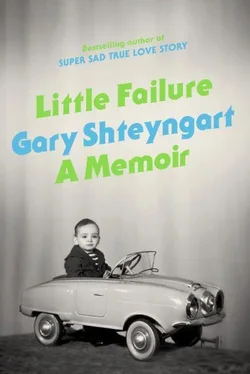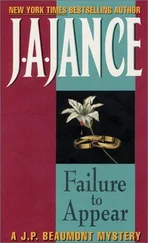As I’m reading it, I am hearing a different language come out of my mouth. I do full justice to the many misspellings (“the Earth cir -culed the moon”), and the Russian accent is still thick, but I am speaking in what is more or less comprehensible English. And as I am speaking, along with my strange new English voice, I am also hearing something entirely foreign to the squealing and shouting and sheket bevakasha! that constitute the background noise of SSSQ: silence . The children are silent. They are listening to my every word, following the battles of the Atlantans and Lopezians as far as the ten minutes of allotted time will go. And they will listen to the story for the next five weeks as well, because Ms. S will designate the end of every English period as Chalenge Time, and they will shout out throughout the English period, “When will Gary read already?” and I will sit there in my chair, oblivious to all but Ms. S’s smile, excused from following the discussion of the mouse who learned how to fly, so that I may go over the words I will soon read to my adoring audience.
And God bless these kids for giving me a chance. May their G-d bless them, every one.
Don’t get me wrong. I’m still a hated freak. But here’s what I’m doing: I am redefining the terms under which I am a hated freak. I am moving the children away from my Russianness and toward storytelling. And toward the ideology of strength and Republicanism, which is life around the Shteyngart dinner table. “Did you write anything new?” shouts a kid in the morning, a merchant’s son, renowned for his lack of basic literacy. “Will the Lopezians attack? What’s Dr. Omar gonna do next?”
What indeed? I am now so far beyond Jerry Himmelstein that I don’t even bother studying him and trying to avoid his social miscues. With my newfound lesser brand of hate comes the responsibility that will haunt me for the rest of my life. The responsibility of writing something every day , lest I fall out of favor again and be restored to Red Gerbil status.
What I need is to expand my repertoire. And that means more access to popular culture. When I’ve run out of The Chalenge to read I follow up with another fifty-pager called Invasion from Outer Space , featuring the evildoings of the Academy of Moors (Yasser Arafat has been back in the news), and that one goes over reasonably well. But what I really need is access to a television set.
Enter Grandmother Polya.

Behind every great Russian child, there is a Russian grandmother who acts as chef de cuisine, bodyguard, personal shopper, and PR agent. You can see her in action in the quiet, leafy neighborhood of Rego Park, Queens, running after her thick-limbed grandson with a dish of buckwheat, fruit, or farmer’s cheese—“Sasha, come back, my treasure! I have plums for you!”—or flipping through rows of slacks at the Alexander’s (now Marshalls) on Queens Boulevard, getting Sasha ready for the new school year.
Rego Park, Queens. This is where I go after school while my parents work. Close enough to Little Neck for my father to strike with his Chevy Malibu Classic, but far enough away that I may develop my own personality. The homey, low-rise redbrick neighborhood is overshadowed by the three modernist Birchwood Towers, each nearly thirty stories in height and featuring the tackiest themed lobbies on the Eastern Seaboard — the Bel Air, the Toledo, and the Kyoto, with its marble Japanese statuette and hanging scrolls. I spot my first limousine parked in the Bel Air’s circular driveway and promise to myself that one day I will own one. Other less gargantuan co-op buildings have pretty gardens and names like the Lexington and New Hampshire House. In one of these, my grandmother, over sixty but still full of country strength, cleans toilets for an American woman.

Grandma lives at 102–17 Sixty-Fourth Avenue, a cheap six-story redbrick facing a public school that contains black children and that we circle with care. She holds court on a wooden bench outside, presenting me to fellow Russian retirees, demanding that attention be paid as she explains how I am the best, most successful grandson that ever walked the streets of Queens.
My grandmother loves me more than the Madonna del Granduca loved her Son, and when I come to stay at her house after school this love is expressed through a three-hour gorging process.
Back at my parents’ house, we feast on Russian or, I should say, Soviet cuisine. Breakfast is a plate of roasted buckwheat groats with a puddle of butter soaking up the middle. Supper is a plate of thick, salty farmer’s cheese with a can of frozen peaches dumped on it. (“Just like they serve in the restaurants!” my mother cries, as if she’s ever been to a restaurant.) Around 3:00 P.M. a piece of boiled meat and some kind of wan vegetable are beaten into submission. “Please,” I beg my mother. “If you let me eat only half a plate of buckwheat groats, I’ll vacuum the whole apartment tomorrow. If we skip the farmer’s cheese, I’ll give you back part of my allowance. Please, Mama, don’t feed me.” When my mother isn’t looking, I run to the bathroom and spit out the inedible bricks of farmer’s cheese, watching the toilet water turn cloudy white with my misery.
At Grandmother’s life is different. Whilst I recline on a divan like a pasha, three hamburgers topped with coleslaw and mustard and a fart of ketchup are quickly brought to me. I eat them up with trembling hands as my grandmother peers turtle-like from behind the kitchen door, eyes wide with anxiety. “Are you still hungry, my favorite one?” she whispers. “Do you want more? I’ll run to Queens Boulevard. I’ll run to 108th Street. I’ll run anywhere!”
“Run, Grandma, run!” And Grandma raises dust through central Queens, her arms straining under the weight of pepperoni pizza pies, greenish pickle slices, cervelat smoked sausages from Misha and Monya’s Russian gastronom , ridged potato chips covered in some kind of orange crud, mayonnaise-heavy tuna-fish salad from the kosher store, thick pretzels that I pretend to smoke like cigars, ranch dips that bring to mind a hint of the garlic that’s all but absent in our Little Neck garden apartment, packets of creamy chocolaty Ding Dongs, cartons of Sara Lee layer cake. I eat and eat, trans fats clogging my little body, pockets of fat popping up in unlikely places. Sometimes I find Grandma in the kitchen sucking on a chicken bone amid an orange landscape of government cheese while she leafs through a fresh packet of food stamps, each graced with a beautiful drawing of Philadelphia’s Liberty Bell. Grandma survived the wartime evacuation of Leningrad with her three-year-old son, my father, to suck poultry marrow in a Queens kitchen. But she looks happy with her meager meal, philosophical. Anything to keep Little Igor (or Gary, as the Americans are now calling him) in Ding Dongs.

Grandma’s one-bedroom apartment is a thing of wonder. Besides the hamburger-producing kitchen there is my mean step-grandfather Ilya glowering at the dining table, who will die soon anyway, partly of cancer and partly because he’s never really found anyone in Rego Park with whom to hoist 150 grams of the good stuff (alcoholic heartbreak should be a classifiable Russian disease). Then there are the bright medals Ilya won “for bravery” while serving with the Soviet navy in the Arctic Circle, which I love to pin across my chest, because, yes, the Russians are liars, but we still fought and won the Great Patriotic War against the Germans, so … And most important, there is the television set.
Читать дальше













